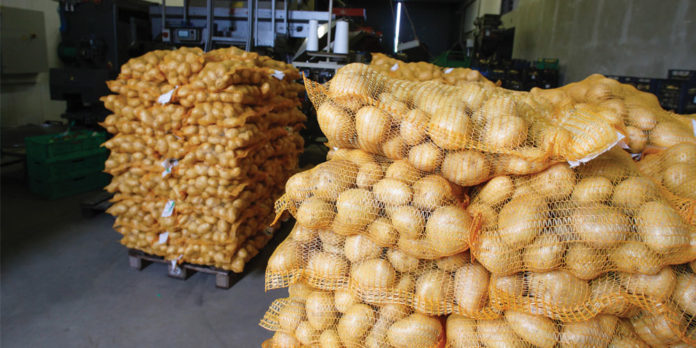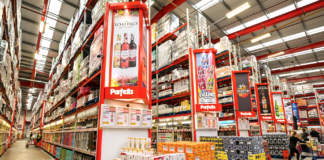Patrick Mitchell-Fox on how fresh produce could provide a tonic for wholesalers blighted by falling tobacco sales.
To look forward, we naturally review the past. Each January, I bring together IGD’s statistical review of wholesaling for the previous year. It means a busy few weeks, resulting in a PowerPoint deck of graphs, tables and pie charts glued together with brief commentary to provide context and analysis.

Among the stats and analysis is, of course, our forecast of sector growth, setting out where we think the market will get to in the next five years.
Pity me in my task of reviewing 2016 and forecasting the market out to 2021 when, at the end of January, the news of the proposed Tesco/Booker merger broke. If ever an event was calculated to throw the chess pieces in the air and change the rules for whatever comes after in wholesaling, this was it.
Once I had caught my breath, it became apparent that the data for 2016 is still relevant to the future of the channel. Although 2016 doesn’t hold the answers to where we may end up, it is critical to help us understand the context of where the Tesco/Booker deal has come from, and what it may seek to achieve for Booker and for the sector.
So, what of 2016? Well, in many respects, the pattern of performance was similar to that of 2015. Weighing in at almost £30bn for the full year of sales, growth was slow, up just 0.3% on the previous year. So far, so humdrum – but that is perhaps exactly the point.
Once again, the brighter part of the sector was in foodservice, which drove growth with sales up 2.1%, well ahead of the overall average. This demonstrates the vibrancy of ever-expanding out-of-home custom.
The retail channel was affected by the headwinds from price deflation for much of the year. We saw good growth in some categories, with areas like fresh & chilled, along with beers, wines & spirits contributing uplifts, while sales to the independent and convenience retail customer base fell by 0.6%.
For another year, the biggest single drag on retail channel sales for wholesalers was the decline of tobacco. This decline may not be big in percentage terms, down 1.8%, but tobacco still accounts for 51% of the segment’s total sales and the cash impact is substantial. Remove tobacco from the retail channel’s sales, and growth would be positive – not significantly, but it would be positive.
Furthermore, tobacco sales could face challenges in the future due to EUTPDII legislation. With perhaps the only deepening decline in the offing, tobacco is set to significantly affect wholesaling performance for years to come.
Looking out over the next five years, we are forecasting the wholesaling sector to have a value of £31.3bn by 2021, representing a compound annual growth rate (CAGR) of 0.9%. This forecast projects a 2.5% CAGR for delivered foodservice, and 0.1% and 0.5% for the retail-led cash & carry and delivered grocery segments, respectively. Tobacco will be the biggest negative influence in both.
So it’s no surprise that looking to the future, the challenge for many wholesalers is how to offset this pervasive decline of tobacco. Short-term, we have seen some operators targeting share gains by splitting tobacco out and re-packing to reduce purchase units in the hopes of attracting small retailers who have the ability to manage their cash flow with smaller, but more frequent, tobacco spends. However, long-term, the offset can only come from other categories with clear growth potential, and this quest is surely behind Booker’s logic to seek its merger with Tesco. Other than the areas of wholesale we know to be growing – foodservice and fresh – where else will they look for this growth?
The talk of the need to develop fresh & chilled in wholesaling has been a refrain for many years. There has been progress; quite striking in some cases. But across the sector and its retail customers, when comparing to the multiple retail sector, there’s no doubt that fresh & chilled remains significantly underdeveloped. Perhaps Booker’s deal with Tesco will assist them greatly on this front.
In the meantime, we will have to get used to living with the uncertainty of all these outcomes. What is certain is that many wholesalers do need to seek bold and challenging solutions to shake up the current status quo in the sector, and create a new growth agenda for the future.
Patrick Mitchell-Fox is senior business analyst at grocery research body IGD. IGD’s Wholesaling 2017 conference takes place in London on 6 September.








